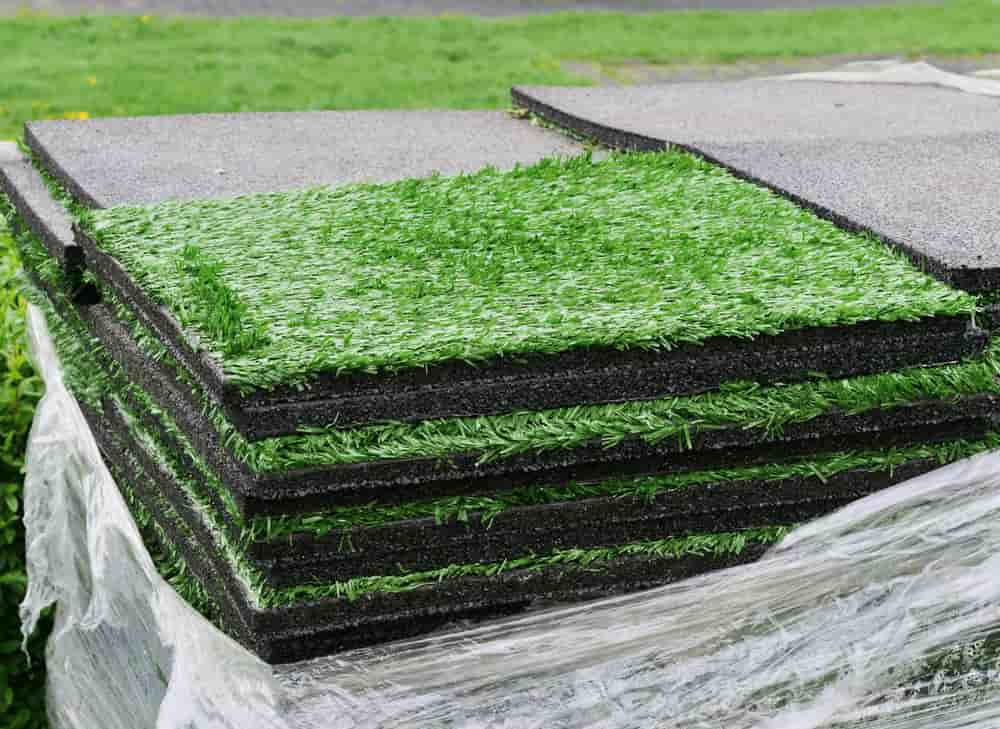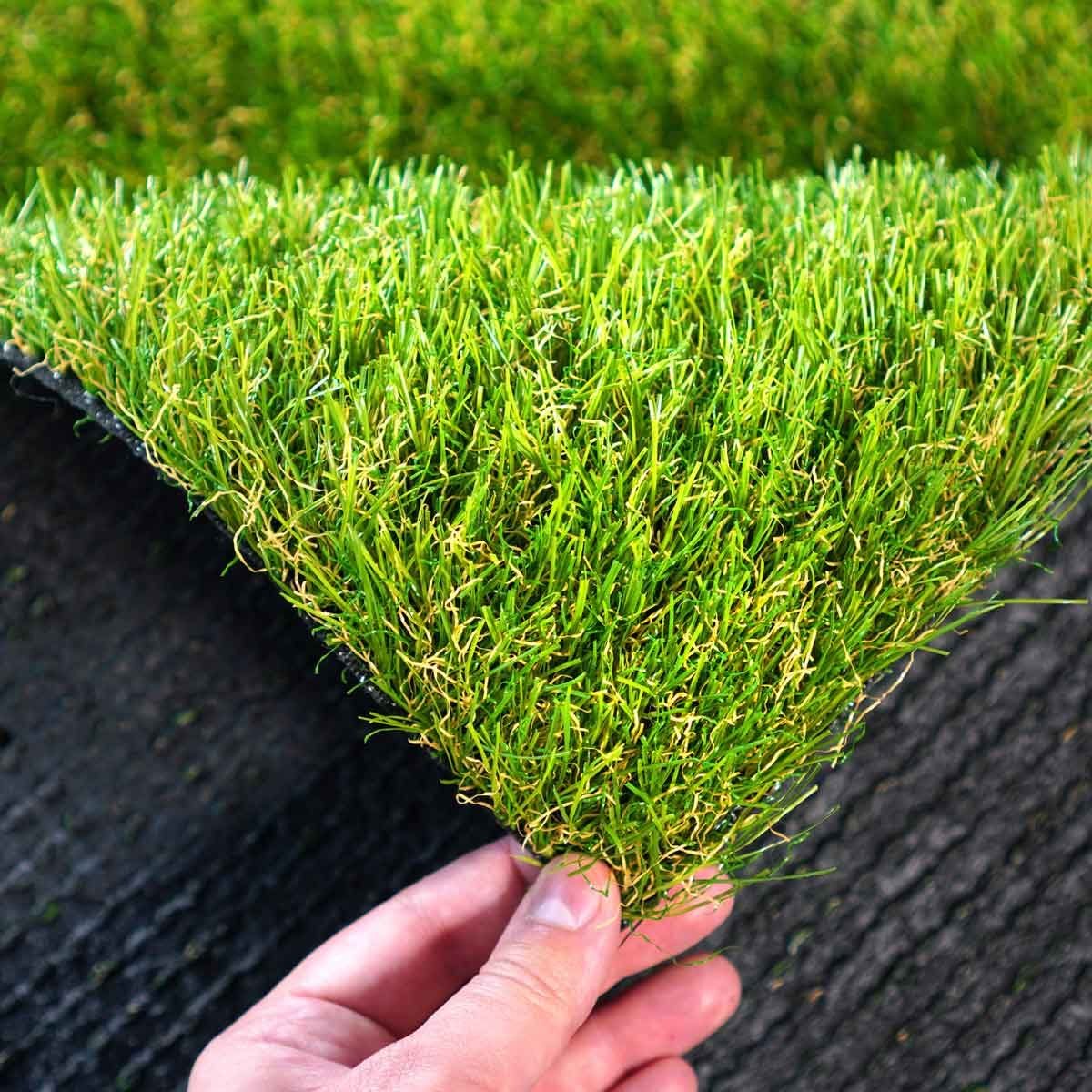Enjoy a Flawless Lawn with Arizona Artificial Turf for Any Outdoor Space
Enjoy a Flawless Lawn with Arizona Artificial Turf for Any Outdoor Space
Blog Article
Look Into the Environmental Conveniences of Opting for Synthetic Grass Solutions
The adoption of synthetic grass remedies provides a compelling chance to resolve pushing ecological obstacles. By substantially reducing water usage and minimizing the application of damaging chemicals, these alternatives not only promote sustainable landscaping however likewise safeguard local ecological communities. Furthermore, the lower carbon impact connected with decreased maintenance tasks adds to an extra lasting technique to land administration. However, the implications of these benefits extend past plain preservation initiatives, questioning concerning their long-term effect on environment preservation and overall ecological equilibrium. Discovering these dimensions exposes an intricate interaction worth thinking about.
Water Preservation Advantages
One of the most considerable advantages of synthetic grass is its capacity to preserve water. Typical grass lawns need considerable irrigation, especially in areas prone to drought or water restrictions. On the other hand, man-made lawn does not require watering, significantly minimizing the general demand for water sources. This feature is particularly helpful in dry areas where water deficiency is a pushing worry.
By getting rid of the demand for normal watering, man-made grass adds to lasting landscape practices and aids minimize the ecological impact of extreme water intake. In addition, the conservation of water prolongs to the decrease of drainage, which can result in dirt disintegration and waterway air pollution.
Additionally, the installment of synthetic grass enables house owners and towns to allocate water sources much more successfully, concentrating on necessary usages such as drinking water and farming. The change towards synthetic grass not only advertises liable water usage yet also aligns with wider environmental goals targeted at protecting natural resources.
As areas increasingly prioritize sustainability, the water conservation advantages of synthetic grass offer an engaging situation for its fostering in domestic and commercial landscaping projects.
Reduced Chemical Use
The transition to artificial turf significantly lowers the reliance on chemical treatments typically used in all-natural lawn upkeep. Conventional turf monitoring normally includes the application of fertilizers, herbicides, and chemicals to advertise growth and control parasites. These chemicals can present risks to human wellness, neighborhood wild animals, and the atmosphere, adding to dirt and water contamination.
In comparison, synthetic grass removes the demand for these harmful substances. By lessening the launch of synthetic compounds into the community, synthetic lawn advertises much healthier dirt and water systems.
Additionally, the absence of chemical runoff connected with synthetic grass setups aids shield neighborhood waterways from air pollution, sustaining marine life and keeping biodiversity. Phoenix turf companies. As areas increasingly focus on sustainable techniques, deciding for synthetic grass offers a practical service that aligns with environmental conservation goals. With this shift, residential property proprietors can delight in lush green rooms without endangering ecological wellness, leading the way for an extra lasting future
Lower Carbon Footprint

Furthermore, the setup of synthetic grass can result in considerable water preservation. Natural grass require significant quantities of water for irrigation, which not only includes in the carbon impact associated with water removal and treatment but likewise stress regional water sources. In comparison, synthetic grass requires marginal maintenance, needing no watering, consequently dramatically minimizing water usage and its associated energy prices.
Furthermore, the durability of synthetic grass contributes to its decreased carbon effect. With a life expectancy of approximately 15 years or even more, the need for frequent replacements is diminished, resulting in much less waste and lower energy consumption in production and disposing of standard lawn options. Generally, fabricated lawn presents a sustainable choice for environmentally aware landscaping.
Habitat Conservation
Environment conservation is a critical factor to consider in the argument over landscaping choices, particularly when contrasting fabricated lawn to natural lawn. Natural lawn yards usually need substantial maintenance, including making use of chemicals, herbicides, and fertilizers, which can detrimentally influence neighborhood environments. These chemicals can leach right into the soil and waterways, hurting native plants and fauna and interrupting regional habitats.
In contrast, man-made grass offers a chance to reduce the eco-friendly impact of landscape design. By choosing artificial turf, property owners can minimize the interruption of all-natural habitats connected with typical lawn care techniques. Synthetic grass eliminates the requirement for damaging chemicals, therefore shielding nearby wildlife and preserving the honesty check this site out of bordering communities. In addition, the installation of synthetic grass can lead to the conversion of former lawn locations right into even more biodiverse landscapes, such as pollinator yards or native plant areas, which can support neighborhood wildlife.
Ultimately, the transition to synthetic grass not only saves water and lowers upkeep efforts yet additionally cultivates an extra unified connection between human tasks and the natural setting, advertising habitat preservation in the procedure.
Long-Term Sustainability
Lasting sustainability is an important consider assessing the benefits of synthetic grass over typical lawn lawns. Among the most significant advantages of synthetic grass is its toughness; it can last approximately 15-20 years with minimal upkeep, whereas natural grass calls for regular reseeding and substitute. This durability reduces the need for constant resources, such as water, plant foods, and pesticides, which are necessary for keeping a healthy yard lawn.
In addition, synthetic grass contributes to a reduction in carbon exhausts associated with grass care devices. Typical yards usually need gas-powered lawn mowers, leaners, and blowers, all of which add to air pollution. Turf installation phoenix az. In comparison, fabricated lawn gets rid of the demand for such tools, advertising a cleaner environment
Moreover, the production of fabricated grass increasingly uses recycled products, improving its sustainability profile. As suppliers adopt green techniques, the environmental impact you could try here of synthetic grass remains to reduce.

Verdict
The fostering of synthetic grass solutions presents significant environmental advantages, including substantial water conservation, decreased dependence on dangerous chemicals, and a reduced carbon impact. Moreover, synthetic grass aids in protecting natural habitats by reducing land disruption and advertising lasting sustainability with the use of long lasting products. Collectively, these factors underscore the possibility of synthetic grass to add favorably to environmental wellness and use a practical alternative to traditional landscape design methods in an increasingly resource-conscious globe.
In comparison, synthetic lawn does not need watering, considerably decreasing the general need for click for info water resources. By minimizing the launch of synthetic substances into the ecological community, man-made lawn promotes healthier dirt and water systems.
Additionally, the installation of man-made grass can result in substantial water conservation. In comparison, synthetic grass needs very little maintenance, needing no watering, thereby considerably lowering water usage and its connected power costs.

Report this page